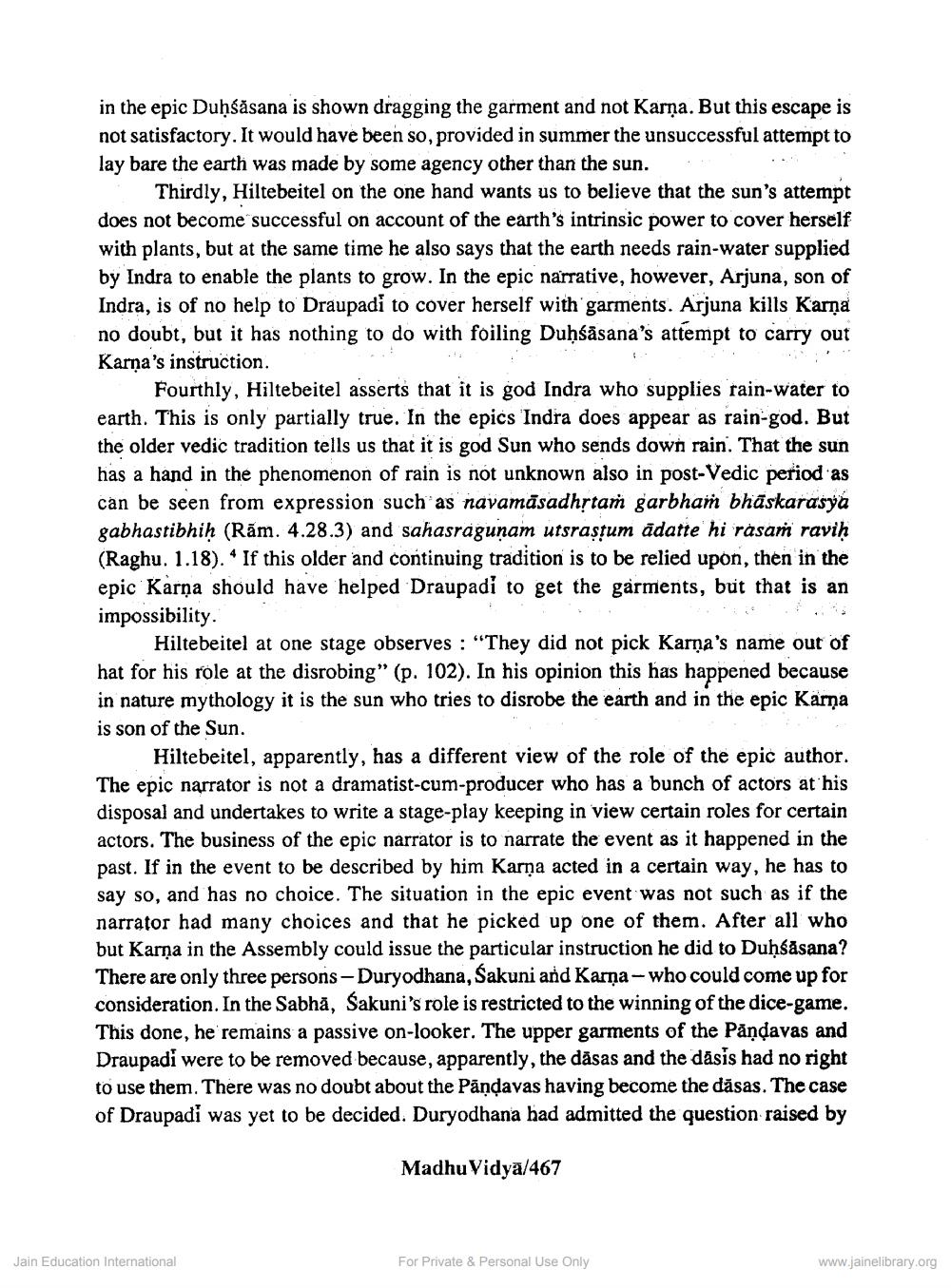________________
in the epic Duḥśăsana is shown dragging the garment and not Karna. But this escape is not satisfactory. It would have been so, provided in summer the unsuccessful attempt to lay bare the earth was made by some agency other than the sun.
Thirdly, Hiltebeitel on the one hand wants us to believe that the sun's attempt does not become successful on account of the earth's intrinsic power to cover herself with plants, but at the same time he also says that the earth needs rain-water supplied by Indra to enable the plants to grow. In the epic narrative, however, Arjuna, son of Indra, is of no help to Draupadi to cover herself with garments. Arjuna kills Karna no doubt, but it has nothing to do with foiling Duḥśāsana's attempt to carry out Karna's instruction.
Fourthly, Hiltebeitel asserts that it is god Indra who supplies rain-water to earth. This is only partially true. In the epics Indra does appear as rain-god. But the older vedic tradition tells us that it is god Sun who sends down rain. That the sun has a hand in the phenomenon of rain is not unknown also in post-Vedic period as can be seen from expression such as navamāsadhstañ garbhañ bhāskarasya gabhastibhih (Răm. 4.28.3) and sahasragunam utsrastum adatte hi rasam raviḥ (Raghu. 1.18). * If this older and continuing tradition is to be relied upon, then in the epic Karna should have helped Draupadi to get the garments, but that is an impossibility.
Hilte beitel at one stage observes : "They did not pick Karna's name out of hat for his role at the disrobing” (p. 102). In his opinion this has happened because in nature mythology it is the sun who tries to disrobe the earth and in the epic Karna is son of the Sun.
Hiltebeitel, apparently, has a different view of the role of the epic author. The epic narrator is not a dramatist-cum-producer who has a bunch of actors at his disposal and undertakes to write a stage-play keeping in view certain roles for certain actors. The business of the epic narrator is to narrate the event as it happened in the past. If in the event to be described by him Karņa acted in a certain way, he has to say so, and has no choice. The situation in the epic event was not such as if the narrator had many choices and that he picked up one of them. After all who but Karna in the Assembly could issue the particular instruction he did to Duhsasana? There are only three persons - Duryodhana, Sakuni and Karna- who could come up for consideration. In the Sabhā, Sakuni's role is restricted to the winning of the dice-game. This done, he remains a passive on-looker. The upper garments of the Pandavas and Draupadi were to be removed because, apparently, the dåsas and the dāsis had no right to use them. There was no doubt about the Pāņdavas having become the dāsas. The case of Draupadi was yet to be decided. Duryodhana had admitted the question raised by
Madhu Vidya/467
Jain Education International
For Private & Personal Use Only
www.jainelibrary.org




